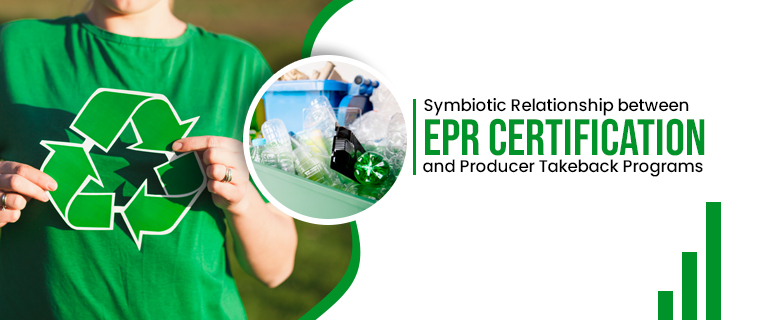Demystifying the EPR Certificate Format
The Extended Producer Responsibility (EPR) Certificate is a critical document for importers, signifying their commitment to environmentally responsible trade practices. Understanding the EPR Certificate format is essential for navigating international trade regulations and ensuring compliance with environmental norms. In this guide, we delve into the key components and considerations of the EPR Certificate format.
1. Header Information:
The EPR Certificate typically begins with a header section containing essential details, such as the name and address of the importer, the date of issue, and a unique certificate identification number. This section serves as a quick reference for authorities and stakeholders involved in the importation process.
2. Importer's Environmental Management Practices:
A significant portion of the EPR Certificate is dedicated to outlining the environmental management practices adopted by the importer. This includes strategies for reducing the environmental impact of products, waste management procedures, and initiatives aimed at promoting sustainability throughout the product life cycle.
3. Product-Specific Information:
The EPR certificate provides specific details about the products covered, including their nature, quantity, and relevant environmental attributes. This section helps authorities understand the scope of the importer's responsibility and ensures that the EPR requirements are tailored to the specific characteristics of the imported goods.
Read also this-: The Vital Role of EPR Certificates in E-Waste Recycling4. Waste Reduction Strategies:
Importers are required to outline their waste reduction strategies and initiatives. This could involve measures such as designing products with minimal environmental impact, promoting recycling, or exploring innovative packaging solutions. Clear documentation of these strategies is crucial for demonstrating a proactive commitment to environmental responsibility.
5. Disposal and Recycling Plans:
An integral part of the EPR Certificate format involves detailing the plans for the proper disposal or recycling of products at the end of their life cycle. Importers must showcase how they intend to manage the environmental impact of their products, addressing concerns related to pollution and waste accumulation.
6. Consumer Education Initiatives:
EPR certificates may include information about initiatives undertaken by the importer to educate consumers about the environmental aspects of the products. This could involve labelling, informational campaigns, or partnerships with organizations promoting environmental awareness.
7. Compliance with Local Environmental Laws:
Importers must explicitly state their compliance with local environmental laws and regulations in the EPR Certificate. This serves as a declaration that the imported goods adhere to the specific environmental standards set by the importing country.
Read also this-: Revolutionizing E-Waste Management Through EPR Certification8. Certification Authority and Signature:
The EPR Certificate concludes with the details of the certifying authority, which could be a government agency or an accredited third-party organization. The signature of the responsible authority authenticates the document and attests to the importer's adherence to environmental standards.
Conclusion:
In navigating the complexities of international trade, understanding the EPR Certificate format is crucial for importers seeking to demonstrate their commitment to sustainable and eco-friendly practices. This comprehensive guide highlights the key components of the certificate, emphasizing the importance of transparency, compliance, and environmental responsibility. As global efforts toward sustainability intensify, mastering the intricacies of the EPR Certificate format becomes a strategic imperative for businesses engaged in cross-border trade.




Comments
Post a Comment